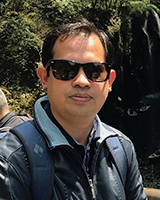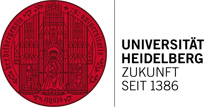“I really lost my heart in beautiful Heidelberg”

Dr Nuruzzaman Khan Hira, Chemist at University of Dhaka in Dhaka/Bangladesh
From 2010 to 2014 Doctoral Candidate at Heidelberg University
When, how long and in what position did you stay at Heidelberg University?
I was awarded a DAAD scholarship to study my Doctor of Science at the Institute for Physical Chemistry at Heidelberg University from 2010 to 2014.
Why did you decide in favour of the Ruperto Carola?
I had a long desire to complete my post-graduation in Europe. Heidelberg University is one of the oldest universities in Europe and a top university to study basic chemistry. I was in contact with Prof. Michael Zharnikov, who was a team leader at the Institute for Physical Chemistry at Heidelberg University and one of the leading scientists in the field of surface science in Germany. He encouraged me to join his research group. Then I decided to apply for a DAAD scholarship for my doctoral studies at Heidelberg University. Finally, the moment of life change came and I was awarded a DAAD full scholarship for a Ph.D. program. I decided to join Heidelberg to study chemistry.
What did you like best about being in Heidelberg? What suggestions would you have for improvements?
Heidelberg is a leading university city in Germany, Europe and probably in world. It offers world-class research environments and international collaborations. There were many international members in the research group from a variety of countries such as France, India, Bangladesh, China, Italy, Taiwan, etc. I really enjoyed this international atmosphere and got trained in team working. Learning a new language is great fun. I learned the German language in Goethe Institute for 4 months (started from A1) and completed up to B1 level. We visited many nearby places and tourist sports located in Heidelberg and neighboring cities during our language courses. Proficiencies in the local language really helped me to get into and understand the German culture and society. I lived in the university dormitory located in Neuenheimer Feld, near the Neckar river. I have lots of memories of the Neckar valley such as BBQ parties, playing, cycling, jogging, etc. My wife joined me here in Heidelberg and we have wonderful memories and enjoyed our time in Heidelberg. I really lost my heart in beautiful Heidelberg.
How did your career continue after your time in Heidelberg?
After the completion of my Ph.D. I joined the group of Prof. Zharnikov at the Institute for Physical Chemistry. After that, I got a position as lecturer at the University of Dhaka, Bangladesh. In 2015, I joined the same department as assistant professor. In 2016, I was awarded a postdoctoral fellowship (2016-2018) from the Japan Society for the Promotion of Science (JSPS) to conduct research in Japan.
What is your view of the German scientific system in comparison to that of your home country or to that of other countries where you may have conducted research?
Germany as well as Europe is the divine land for many scientists and academics. The research and scientific system in Germany is very supportive for aspirants who want to pursue their post-graduation and beyond that further research collaboration is also conceivable. Considering the educational system of my home country Bangladesh, the policy is very supportive for both domestic and international students: students need to pay a tuition fee of only about 40-60 Euro/year and a very small admission fee. So they can continue their study without financial help from their parents, unlike German students. In case of higher study and advanced research, Bangladesh is adopting many policies to ensure available funds and scholarships. Germany offers better research opportunities and possibilities for collaboration. I did my postdoc in Japan (2016-2018) with a JSPS fellowship. In Japan the hierarchy in universities is comparable to the one in Germany. Under a professor, there are several group leaders who run their groups, and students work as a team under the group leaders’ supervision.
In your opinion, what is the importance of international exchanges for researchers?
International exchange is a key factor for modern research and can be realized in all disciplines of science. Experience gained in the international exchange is important to achieve goals in a team. The collaborative research facilities and modern communication system boosted the internationalization of working environments in Bangladesh.
Why did you apply to HAIreconnect and what are your plans to do during your stay in Heidelberg?
In 2018 I joined the HAJP research alumni meeting in Kyoto, Japan. I had the opportunity to discuss with Prof. Dr Bernhard Eitel, President of Heidelberg University, various issues for a possible research collaboration and student exchange program between Heidelberg University and the University of Dhaka, Bangladesh. I learned about the HAIreconnect program there and got inspired to apply. I do have a plan for my stay in Heidelberg for my own research project. My doctor father Prof. Zharnikov advised me about some joint projects under his supervision during my last visit in Heidelberg in June 2018. We are now planning to submit a research project for funding and the HAIreconnect fellowship will be certainly a great help in this regard for reestablishing connections in Heidelberg. I am also in good contact with several professors and group leaders in my field located in Heidelberg and other research institutions in Germany. I am looking forward to make new connection from my research visit in Heidelberg and benefit from the scientific cooperation and collaborations.
What is your opinion of the opportunities made available through the Research Alumni Network? Have you taken advantage of any of these opportunities yet?
I hope that my stay in Heidelberg will be beneficial for establishing new connections and future research collaborations in Heidelberg and also in Germany. I never had such an experience before. I am looking forward to make the best possible benefit from this opportunity.

